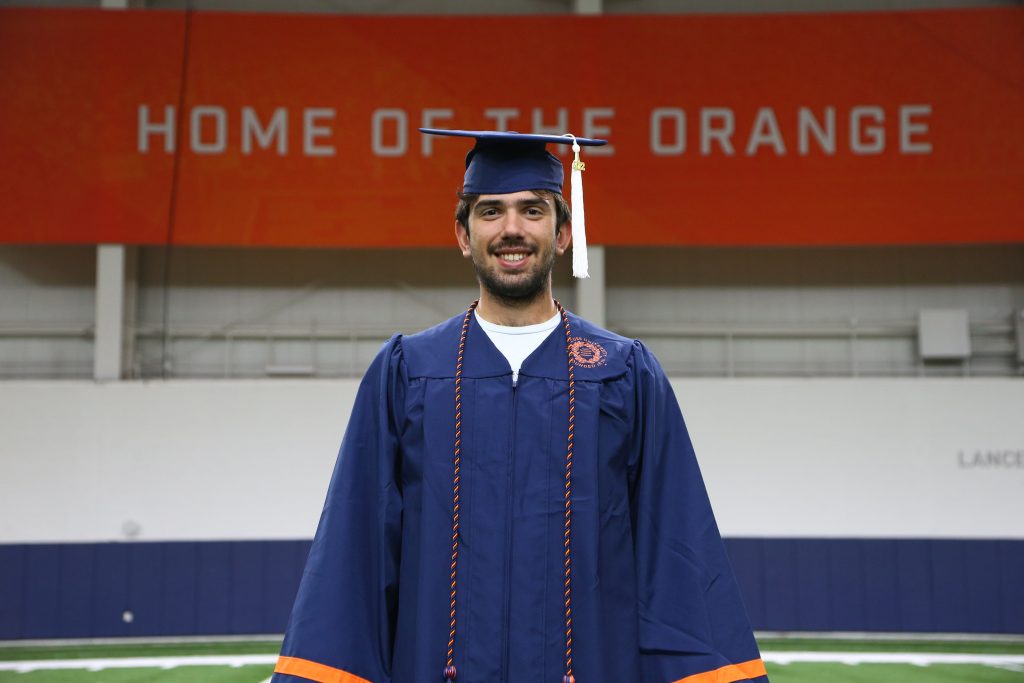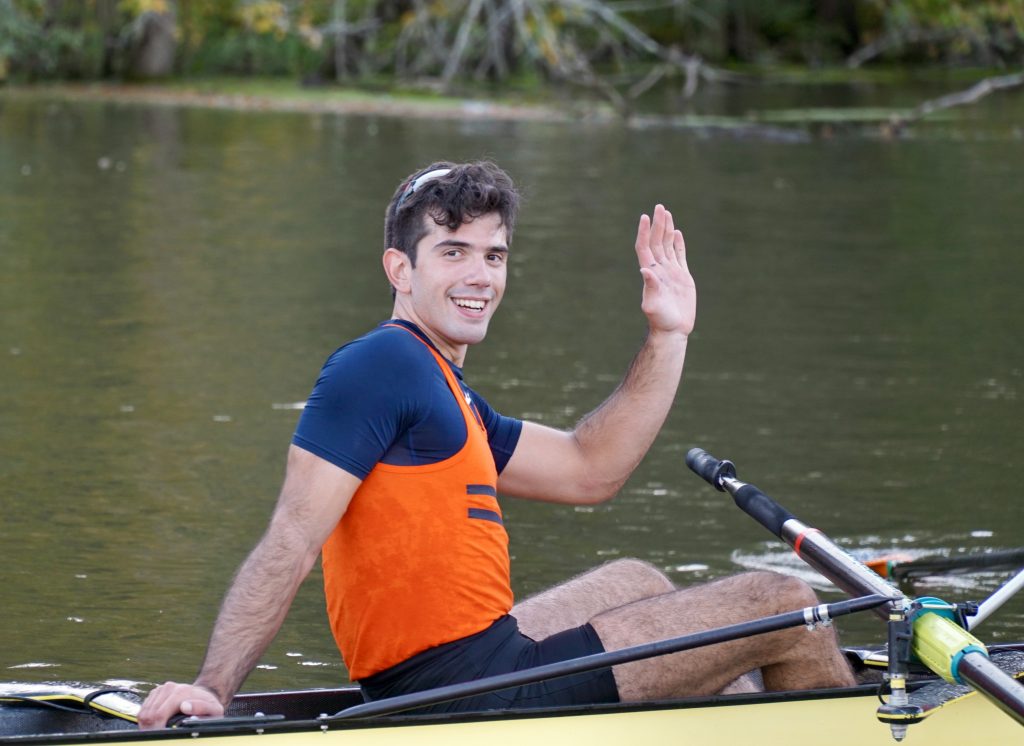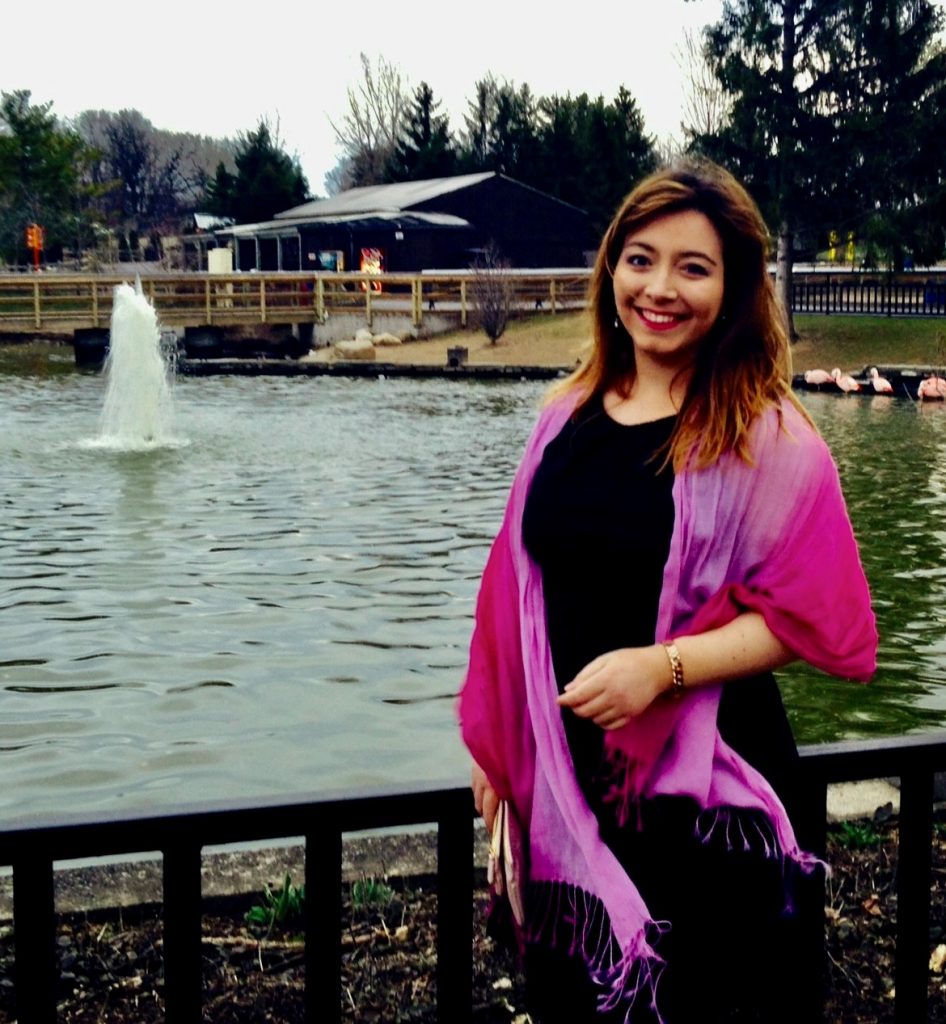
Professor Tulia Gattone, who teaches Globalization, Development, and the Environment, and Jacopo Bertone, who assists our Student Life Office, have an edge over their fellow Italian colleagues here at Syracuse Florence: they have both studied at Syracuse University in New York.
They also both work with our Discovery Florence students, who spend the first semester of their undergraduate career here in Italy. The time Bertone and Gattone spent as international students in America gives them a unique, helpful perspective on our students’ experience living in Florence. We asked them to tell us more.
Where are you from originally?
Bertone: I am originally from Bagno a Ripoli [a suburb of Florence], but I was raised in Varese from the time I was 6.
Gattone: I was born and raised in a charming little village nestled at the base of the Majella mountain in the Abruzzo region.
Please tell us how you came to study at Syracuse University in the US.
Bertone: I studied at SU USA because talent scouts from the rowing team contacted me at a World Championship I competed at for the Italian National Team. They offered me a scholarship to row for them so I said, “why not.”

Gattone: My journey to Syracuse University commenced during my exchange program at Dartmouth College. The discovery of the Maxwell School of Citizenship and Public Affairs prompted my application, culminating in the receipt of a substantial scholarship for my graduate studies—an unforeseen stroke of fortune.
What did you study there and what was your favorite thing about the experience?
Bertone: I studied Political Science (International Law) at Maxwell and Communication at VPA. My favorite “thing” was the community around SU. It’s much more patriotic than it is in Italy, and the feeling of belonging is incomparable. I mean…find me an Italian university with a 70,000-seat stadium for their athletics teams!
Gattone: At the Maxwell School, I pursued a Master of Arts in International Relations, complemented by a Certificate of Advanced Studies in Security Studies at the current Institute for Security Policy and Law. The allure lay in the intellectually stimulating classes, distinguished faculty, and the collective spirit of the student body.

Any funny stories about cultural differences, things that surprised you, things you did not expect?
Bertone: I remember than since I did not speak much slang when I first landed in the US, I thought the concept of “hanging out” was to hang things out of the dorm window. It took me months to realize why so many people hung out all the time but I did not see anything out of the windows!
Gattone: A humorous anecdote emerges from a dinner I hosted, misinterpreting the cultural nuance of timing. Assuming a casual “aperitivo,” I found my American guests anticipating a full-fledged dinner, leading to a delightful mishap.
How might other Italians benefit from studying in the US?
Bertone: I think that everyone should try to have an international experience. You find out about another culture that you might resonate with more than your own, or you gain a different perspective that helps you appreciate “home” more.
Gattone: Recommending the US educational experience to fellow Italians is a proposition grounded in profound personal growth. The intrinsic appreciation for Italian culture, coupled with the welcoming embrace of Italian communities, renders it an invaluable opportunity.
How does your experience on the home campus help you in your job at Syracuse Florence?
Bertone: It helps me better understand what the expectations are on this campus. I quickly understand what the students need so I can anticipate what they would like to do/see, and what they would put on their nonpriority list. It is also fundamental to help them adjust to a Western European lifestyle, which can be a bit of a shock at times. It’s the reverse process that I experienced when I was catapulted into the American reality back in 2018, when my college career had just started.
Gattone: My tenure on the home campus significantly informs my role at Syracuse Florence. From deciphering colloquial banter about cold weather to dispensing nuanced academic and professional counsel, this experience serves as a pivotal bridge in understanding and connecting diverse perspectives.
